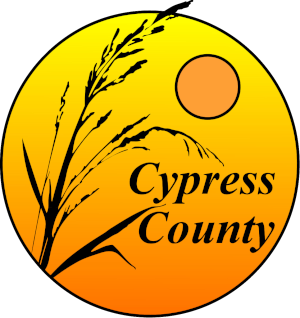Cypress County farmers grapple with drought issues
Posted on 17 August 2023 by Prairie Post
By Fernando Moreno
Alberta Newspaper Group
The growing season this summer has been particularly hard for crop farmers of Cypress County, as they deal with the repercussions of an ongoing drought.
“Unfortunately in agriculture, our business partner is Mother Nature,” says Nichole Neubauer, owner of Neubauer Farms in Medicine Hat. “She can be a bit hostile and pose some challenges.”
The weather is the ultimate factor.
“There’s not really too much we can do,” says Josh Klassen, farm owner in Bow Island. “We will definitely be taking advantage of our crop insurance this year.”
The main source of woes is the lack of rainfall earlier on.
“Had we had just a little bit of rain in June, I think a lot of people would have been able to make a decent crop,” says Neubauer.
The lack of rain resulted in low to no yields this year for some, especially to those who do not have irrigated lands.
“There’s no crop to combine,” says Keith Ritz, a farmer and county councillor for Ward 9 in Jenner, as he notes that the last time his farm did not use the combine harvester was in 2001.
“There’s not much we can do if it doesn’t rain.”
“We had a bit of a later start this spring due to cooler damp conditions,” explains Klassen.
There was less time to get the crops in with a shorter window of time, and Klassen reports a small hay crop due to this course of events. The dry conditions also result in a lower population and quicker grazing times for cattle.
“We’ve been in a vicious cycle of drought for the last seven years,” says Neubauer.
The dry environment has only worsened pest control where grasshopper populations have been allowed to explode.
“Some of our main crop protection tools were taken away from producers this year.” says Neubauer. “It’s unfortunate when they get pulled.”
The drier climate has resulted in a shortage of irrigation water. Farmers have combatted this through rationing.
“The irrigation gives us the diversity to earn the necessary income that we need to keep going,” says Klassen, expressing gratitude for much of the technology available.
There have still, however, been a few highlights this season such as strength of pricing in the cattle market and certain higher crop yields thanks to the irrigation systems.
“This fall’s calf crop should be the saving grace for producers,” says Neubauer.
Farmers use various methods to maximize yields even in the face of droughts, such as how crops are rotated to prevent the consistent use of the same nutrients in the soil.
“If this continues in the future that could pose some real problems. A saving grace is we have is diversity,” says Neubauer adding her farm consists of dry land, flooded land and irrigated land. “It improves our odds overall.”
It’s been a similar year to the previous for Klassen and his neighbours.
“The farming community is all in the same boat, especially those who don’t have irrigation,” says Klassen. “We have good crop insurance programs but those programs have their limits, too.”
Challenges vary from producer to producer depending on the type of land they have available.
“It’s pretty rough for anyone who doesn’t have irrigated land,” says Neubauer.
Nevertheless, the season brings a combined sense of both disappointment and optimism. Ritz hopes for a better year next year while finding solace in his family and that he lives in a free country.
“We all face the same shortage and the same challenges,” says Ritz. “Everybody’s in the same position.”
“We’ve had prolonged droughts in the past and we’ll have rainy days again in the future,” says Neubauer. “I continue to always be impressed with people in the industry and the resilience I see.”
Leave a Reply
You must be logged in to post a comment.
